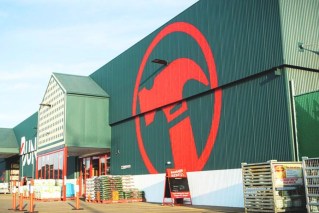Farmers fear that Australian climate inaction could jeopardise future export potential


Farming exports are expected to reach a record $70.3 billion, according to the latest insights, almost 50 per cent more than a decade ago. Photo: Getty
For some Australian farmers, climate change is not just a moral or environmental issue – it’s an economic issue.
As the Nationals remain tight lipped about net-zero targets, the European Union is preparing to slap carbon tariffs on certain imports, and it could set a precedent for agricultural products to be taxed unless the Australian government commits to stronger climate action.
“If we don’t act on it, for the farming community, we will be locked out of international markets. We will be penalised for being high-carbon emitters in our agricultural products,” Broken Hill sheep farmer and agroecologist Dr Anika Molesworth told The New Daily.
“As Australian farmers have this reputation of clean, green food production, that reputation is at risk of being seriously damaged by not being involved in these low-carbon strategies.”
Dr Molesworth is a founding director of the group Farmers for Climate Action and a member of the climate change taskforce of the National Farmers Federation.
She has long campaigned for emissions reductions, and says government inaction on climate change will only hurt farmers in the long run.
Countries that already have carbon taxes are mulling carbon tariffs to stop local producers from being undercut by cheap imports from countries like Australia that don’t have carbon taxes.
The European Union’s Carbon Border Adjustment Mechanism is at the forefront of this trend, however, similar measures are being floated in Canada and Japan.
Other countries with carbon taxes at the national level, such as China, or the regional level, such as the US, could follow suit.
The European scheme will initially only apply to raw materials such as cement, steel and fertiliser, however the EU will consider expanding the scope in 2026.
“Anything that’s emissions intensive is potentially under threat,” Climate Council economist Nicki Hutley told TND.
“They specifically avoid mentioning agriculture anywhere and I think it’s highly unlikely but not impossible.”
Tariff or not, Australia’s environmental reputation could nevertheless hurt consumer attitudes overseas.
If Australia is perceived as being a polluter, Australian-grown products will no longer have an edge on the global market.
Independent regulator Meat & Livestock Australia has set an aggressive target of net zero by 2030, which it says will help “the red meat industry’s social licence to operate”.
Meanwhile, the National Farmers Federation has long pushed for a target of net zero by 2050.
“Everyday farmers across the country are taking real climate action and are primed to play an even larger role in Australia’s lower-emissions future,” NFF president Fiona Simson said earlier in October.
“But we need support, investment and innovation by the government on behalf of the community.”
For Dr Molesworth, these goals are proof that farmers want climate action, even if “political laggards” in Parliament speak out against such measures.
“When you look across society, the agricultural sector is one of the most progressive and forward-looking industries on this issue,” the farmer said.
“But that is totally not being represented in Parliament, much to the detriment of the farmers who are on the front.”








